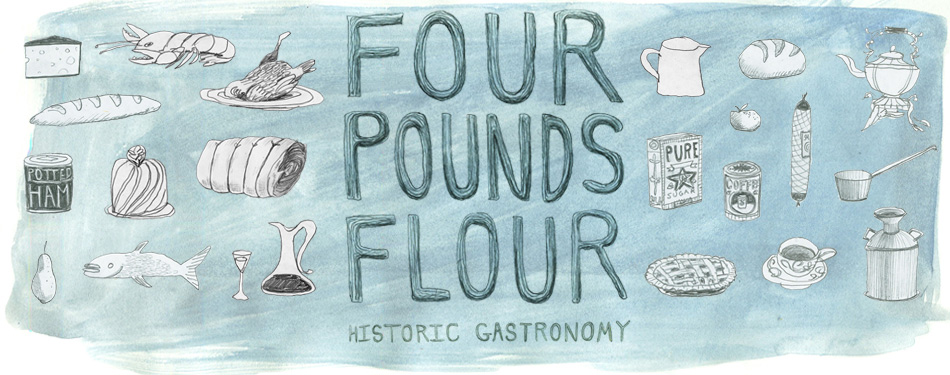 The first issue of “Vegan News,” from 1944.
The first issue of “Vegan News,” from 1944.
Bid farewell to meat, dairy and eggs. For the next five days, I’ll be going historically vegan.
Historically vegan, you say? Why yes! Veganism has at least a 100-year history.
To understand the history of veganism, we have to take a brief look at it’s predecessor, vegetarianism. There have been certain cultures which have been vegetarian for thousands of years: notably, Hindus and Buddhist monks. In the western world, English author Thomas Tryon was advocating vegetarianism in the late 17th century; his book inspired a young Ben Franklin to give up meat. Although Franklin didn’t stick with it, he was a lifetime advocate for gastronomic exploration, collecting recipes for dishes like “Towfu.” The Reverend Sylvester Graham, founder of Oberlin, was a “dietary reformer.” Students at Oberlin College in the mid-19th century had to be vegetarian, and Dr. Graham also invented a “cracker” you may be familiar with.
But the vegetarian movement really picks up steam around 1900. This is when John Harvey Kellogg comes onto the scene, opening up his exclusive, vegetarian spa in Battle Creek Michigan. Not only did he do a lot to develop modern vegetarianism, but he also changed the way all American eat, by popularizing peanut butter, exotic ingredients like soy and seaweed, and inventing breakfast cereal. We eat less meat as a country because of Kellogg. This is also the same era we begin to understand nutrition, including calories and vitamins, and the vegetarian movement fit in to the new, broader, “health food” movement. I have written extensively about Kellogg, and eaten his Battle Creek Sanitarium diet for a week, which you can read about here.
As vegetarianism picked up steam, there was an even more strict movement that was gaining ground, particularly in England: a diet that contained no animal products at all. In 1910, the first cookbook is published that only contains foods “of the vegetable kingdom”: No Animal Food and Nutrition and Diet with Vegetable Recipes by Rupert H. Wheldon. According to the publishers the book is first printed in England, and then adapted for American use. The “No Animal Food” movement began to take hold:
As early as 1909 the ethics of consuming dairy products were hotly debated within the vegetarian movement. In August 1944, Elsie Shrigley and Donald Watson (a conscientious objector later to be acclaimed as the Vegan Society’s Founder) agreed the desirability of coordinating ‘non-dairy vegetarians’; despite opposition from prominent vegetarians unwilling to even consider adopting a diet free of all animal products.
In November, Donald organised a London meeting of six like-minded ‘non-dairy vegetarians’ at which it was decided to form a new society and adopt a new name to describe themselves – vegan derived from VEGetariAN.
It was a Sunday, with sunshine, and a blue sky, an auspicious day for the birth of an idealistic new movement.– Elsie Shrigley, The Vegan magazine, Spring 1962
The first issue of “Vegan News,” published by the world’s first vegan society in England, can be read in its entirety here. It is in this journal that the term “Vegan” is coined.
The next year, in 1945, The Vegan Society of English published a pamphlet titled “Vegan Recipes,” by Fay K. Henderson. This is the first cookbook to use the term “vegan.” Henderson also provides the little motto that is the title of this post.
So for the next five days I will be historically vegan! Today and tomorrow, I’ll be dining from No Animal Food; and Thursday-Saturday I’ll be cooking from the pages of Vegan Recipes. Wish me luck, and follow along right here, all this week!

Hi Sarah!
My son has recently eliminated meat from his diet in preparation for eventually going completely vegan. He says he not only feels better but is enjoying a variety of foods he may not have considered before. It’s been a little over 2 months and both he and Kyla, is wife, are doing famously! (she joined him after seeing the deliciousness he was enjoying) Good Luck to you and yours:)
Pingback: Retro veganism « Retro Recipe Attempts
Just started reading here today, got a link elsewhere looking for recipes for…I forget what!
Anyway, I could never do without my meat and I could definitely could never go vegan!! You are a great adventurer to even consider it!!
The very earliest reference I have found to a vegan diet AND lifestyle is in a Buddhist sutra of the Mahayana school, the Surangama sutra. There may have been earlier Sanskrit versions, but the earliest known version now is from 740 CE. Kind of amazing really, ancient Chinese Buddhist vegans! Nemo
It is amazing! We perceive of “alternative” diets as being a new trend, when its not at all!
This is interesting!